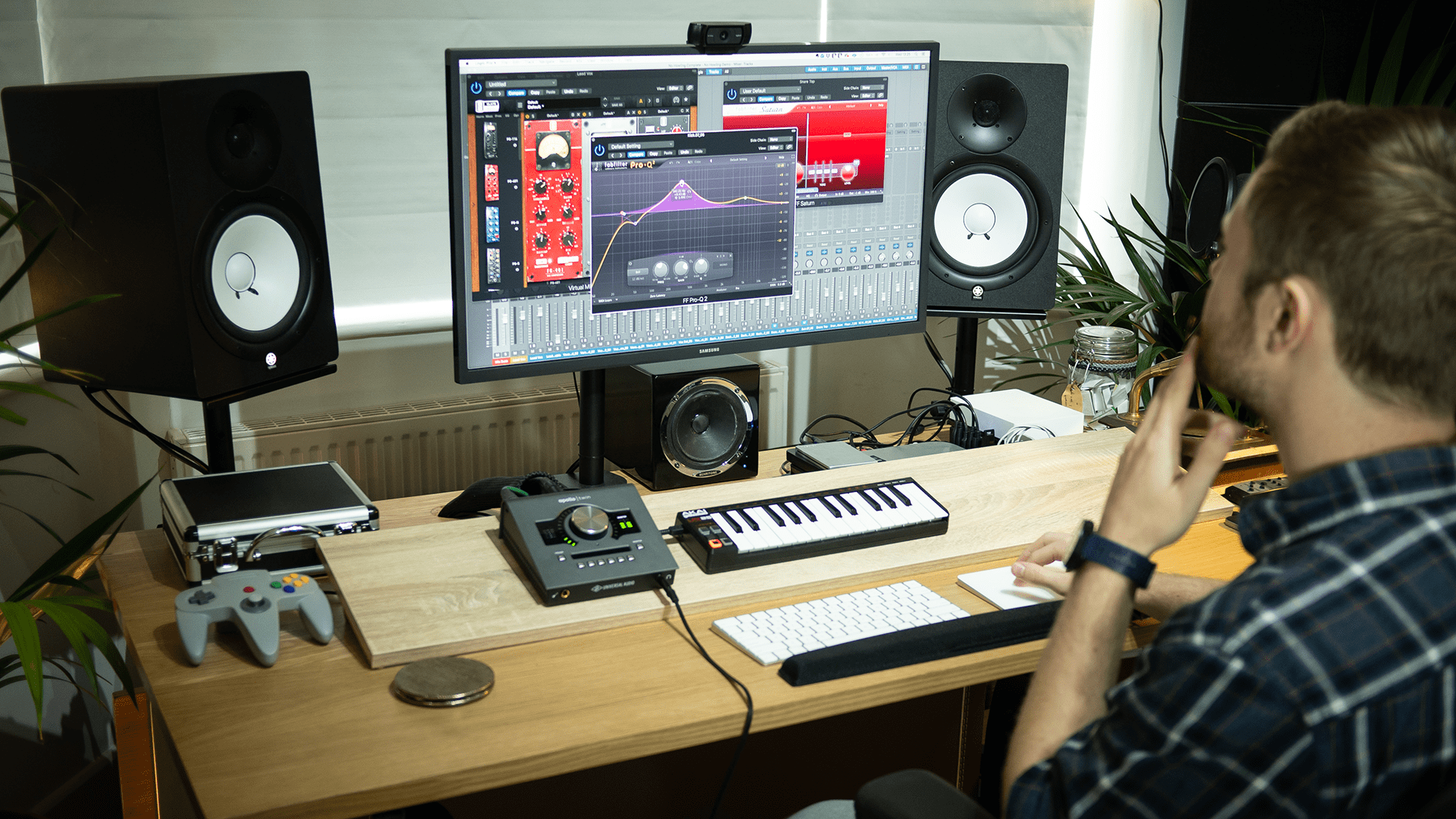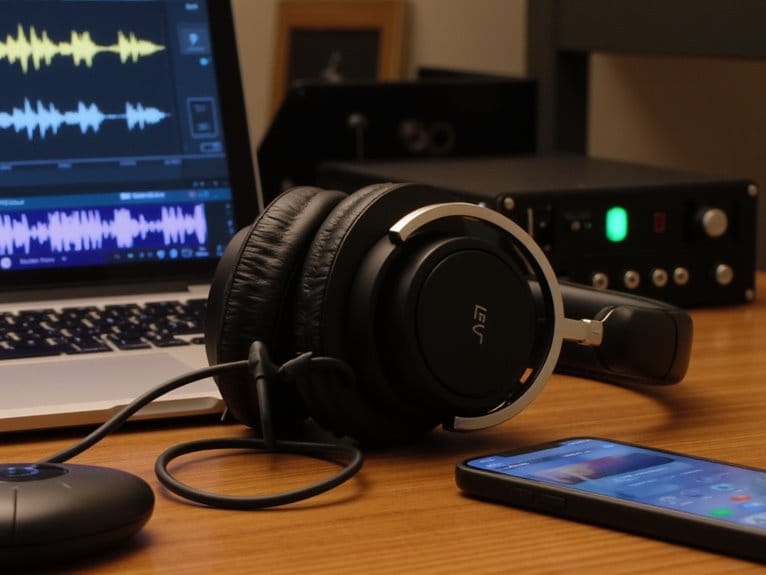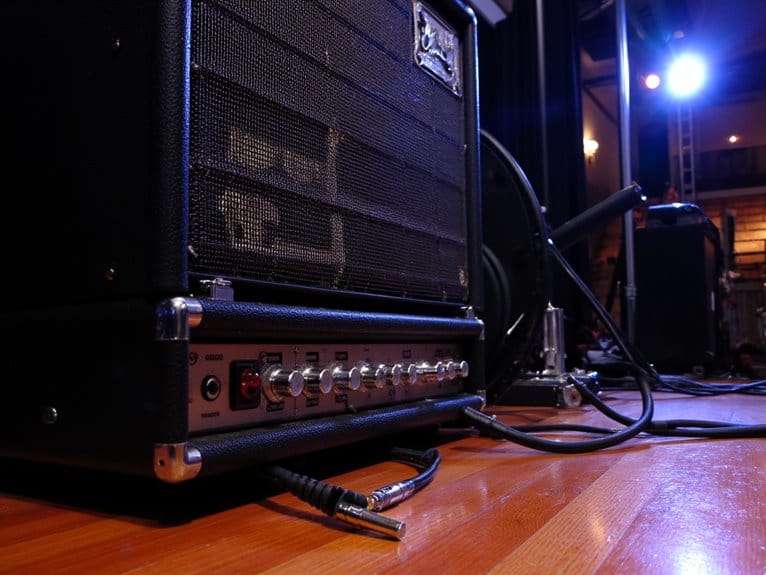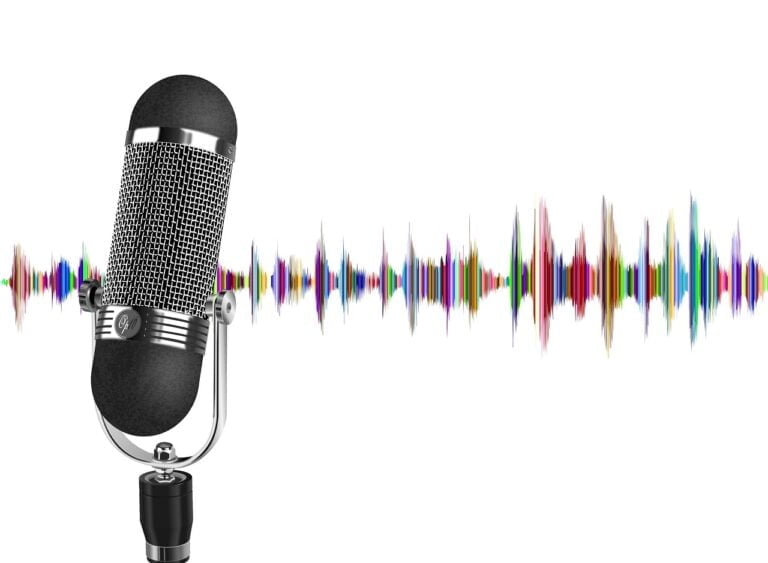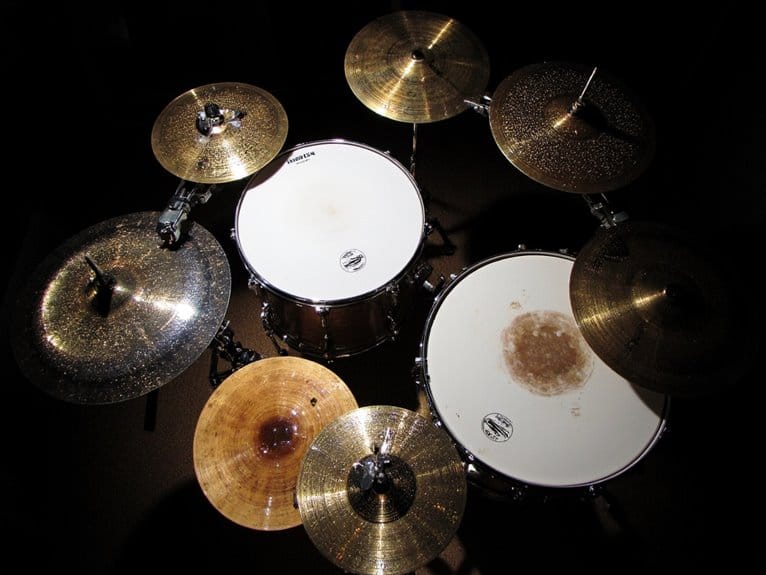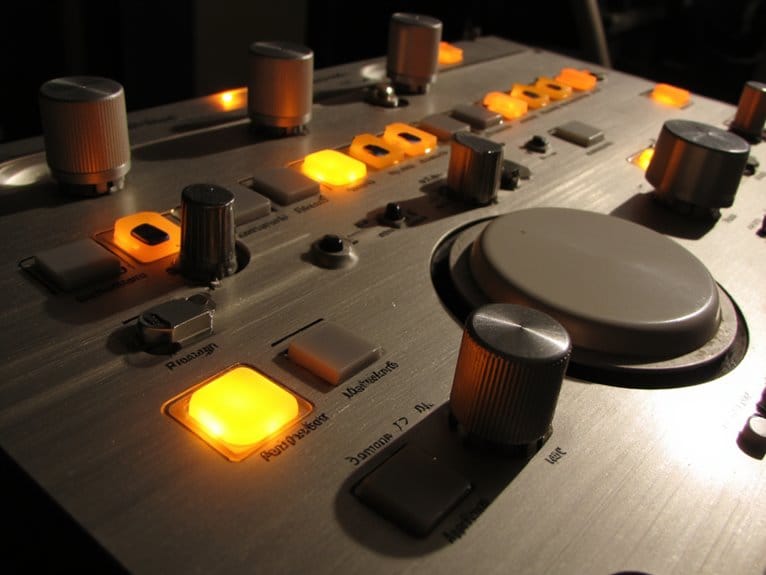DAW Comparison: Pro Tools Vs. Logic Pro Vs. Ableton Live
Are you a music producer on the hunt for the perfect digital audio workstation (DAW)? Well, guess what? I’ve got your back! Let’s dive into a comparison of three top-notch options: Pro Tools, Logic Pro, and Ableton Live. We’ll explore their user interfaces, audio recording and editing features, MIDI capabilities, mixing tools, and more. By the end of this showdown, you’ll have all the insights you need to take your music production game to the next level. So, grab your headphones and let’s get started!
We are supported by our audience. When you purchase through links on our site, we may earn an affiliate commission, at no extra cost for you. Learn more.
User Interface and Workflow
When comparing the user interface and workflow of Pro Tools, Logic Pro, and Ableton Live, you’ll find that each DAW offers distinct features and advantages. Pro Tools, known for its industry-standard status, presents a professional-grade interface designed for efficient audio editing and mixing. Its intuitive layout allows users to navigate seamlessly through the software, enhancing productivity and workflow. Logic Pro, on the other hand, focuses on providing a comprehensive music production experience with its user-friendly interface. Its customizable workflow allows users to personalize their workspace and optimize their creative process. Ableton Live, renowned for its live performance capabilities, offers a unique session view interface that encourages experimentation and improvisation. Its non-linear workflow and real-time audio manipulation features make it a favorite among electronic music producers. Whether you prioritize professional-grade editing, comprehensive music production, or live performance capabilities, each DAW offers a distinct user interface and workflow to cater to your specific needs.
Audio Recording and Editing Features
To continue exploring the comparison between Pro Tools, Logic Pro, and Ableton Live, let’s delve into their audio recording and editing features. Pro Tools is widely regarded as the industry standard for professional audio recording and editing. It offers advanced features such as multi-track recording, non-destructive editing, and seamless integration with external hardware. Logic Pro, on the other hand, is known for its intuitive interface and comprehensive set of editing tools. It provides a range of audio editing features, including flex time and pitch correction. Ableton Live stands out with its unique session view, which allows for real-time audio manipulation and improvisation. It also offers powerful audio editing capabilities, including warping and slicing. Overall, each DAW excels in different areas, catering to the diverse needs of audio professionals seeking innovative recording and editing features.
MIDI Capabilities and Virtual Instruments
Explore the MIDI capabilities and virtual instruments offered by Pro Tools, Logic Pro, and Ableton Live. Pro Tools is known for its robust MIDI editing features, providing advanced tools for precise note manipulation and automation. Logic Pro offers a vast library of virtual instruments, including synthesizers, samplers, and drum machines, allowing you to create a wide range of sounds. Its MIDI capabilities also excel, with features like MIDI plug-ins and advanced routing options. Ableton Live stands out with its unique Session View, enabling you to create, manipulate, and perform with MIDI clips in a non-linear fashion. It also offers a diverse collection of virtual instruments and effects, along with powerful MIDI editing tools. Whether you’re a composer, producer, or performer, these DAWs provide innovative MIDI capabilities and virtual instruments for your creative needs.
Mixing and Audio Processing Tools
These digital audio workstations (DAWs) boast an impressive array of features that cater to the demands of modern music production, allowing for precise control over the audio mix. Pro Tools, known for its industry-standard status, offers a comprehensive set of mixing tools, including advanced automation capabilities and high-quality plugins for EQ, compression, and reverb. Logic Pro, on the other hand, provides a wide range of virtual instruments and effects, allowing users to experiment with different sonic textures. Ableton Live excels in its unique session view, enabling real-time manipulation of audio clips and flexible routing options. Each DAW offers distinct advantages, providing innovative solutions for audio processing and mixing tasks.
Performance and Live Music Production
Your live music performances will greatly benefit from the powerful performance tools offered by Pro Tools, Logic Pro, and Ableton Live. These digital audio workstations (DAWs) provide an array of features designed to enhance your live music production experience. Pro Tools offers a robust set of tools for recording, editing, and mixing audio in real-time, allowing you to make seamless adjustments during your performance. Logic Pro provides a comprehensive suite of virtual instruments and effects that can be easily integrated into your live setup, giving you the flexibility to create dynamic and unique performances. Ableton Live excels in its ability to loop and manipulate audio in real-time, making it ideal for live electronic music production. With these innovative performance tools, you can elevate your live music performances to new heights of creativity and innovation.
Collaboration and File Compatibility
To ensure seamless collaboration and file compatibility in your music production workflow, it is important to consider the capabilities and limitations of Pro Tools, Logic Pro, and Ableton Live. Pro Tools, being an industry-standard DAW, offers extensive collaboration features such as cloud-based project sharing and real-time collaboration with other users. Additionally, it provides comprehensive file compatibility, supporting various audio file formats and allowing easy integration with other DAWs. Logic Pro, on the other hand, excels in file compatibility within the Apple ecosystem, seamlessly integrating with other Apple software and devices. Its collaboration features include project sharing via iCloud and compatibility with GarageBand projects. Ableton Live boasts a unique collaboration feature called “Live Performance Mode,” allowing multiple users to perform together in real-time. Its file compatibility is also robust, supporting various audio formats and offering easy project export and import capabilities. Consider these factors when choosing a DAW to ensure smooth collaboration and file compatibility in your music production endeavors.
Price and Licensing Options
Next, let’s explore the pricing and licensing options available for Pro Tools, Logic Pro, and Ableton Live. Pro Tools offers various pricing plans to suit different user needs. The standard subscription starts at $29.99 per month, while the annual plan costs $299. The perpetual license, priced at $599, provides a one-time purchase option. Logic Pro, on the other hand, is available exclusively for macOS users at a one-time cost of $199. This includes all future updates. Ableton Live offers three versions: Intro, Standard, and Suite. Intro is the most affordable option at $99, while Standard and Suite are priced at $449 and $749 respectively. These versions can be purchased as a one-time payment or through a monthly subscription plan starting at $7.99 per month.
Support and Community Resources
As you continue exploring the pricing and licensing options for Pro Tools, Logic Pro, and Ableton Live, it’s important to consider the support and community resources available for each DAW. Pro Tools offers a comprehensive support system, including phone and email support, as well as an extensive knowledge base and user forums. Logic Pro, on the other hand, provides users with a dedicated support team, offering phone and email assistance, as well as in-depth video tutorials and a user community forum. Ableton Live offers a similar level of support, with a support team available via email and an extensive user manual. Additionally, Ableton Live has an active community forum where users can exchange ideas, ask questions, and share resources. When choosing a DAW, it’s crucial to consider the level of support and community resources available to ensure a smooth and productive workflow.
Conclusion
In conclusion, when comparing Pro Tools, Logic Pro, and Ableton Live, each digital audio workstation (DAW) offers unique strengths and features. Pro Tools excels in professional studio recording and editing, Logic Pro provides comprehensive MIDI capabilities and virtual instruments, while Ableton Live is renowned for its live performance and music production capabilities. The choice ultimately depends on the specific needs and preferences of the user. It is recommended to thoroughly evaluate the user interface, workflow, recording and editing features, mixing tools, performance capabilities, collaboration options, pricing, and support resources before making a decision.

